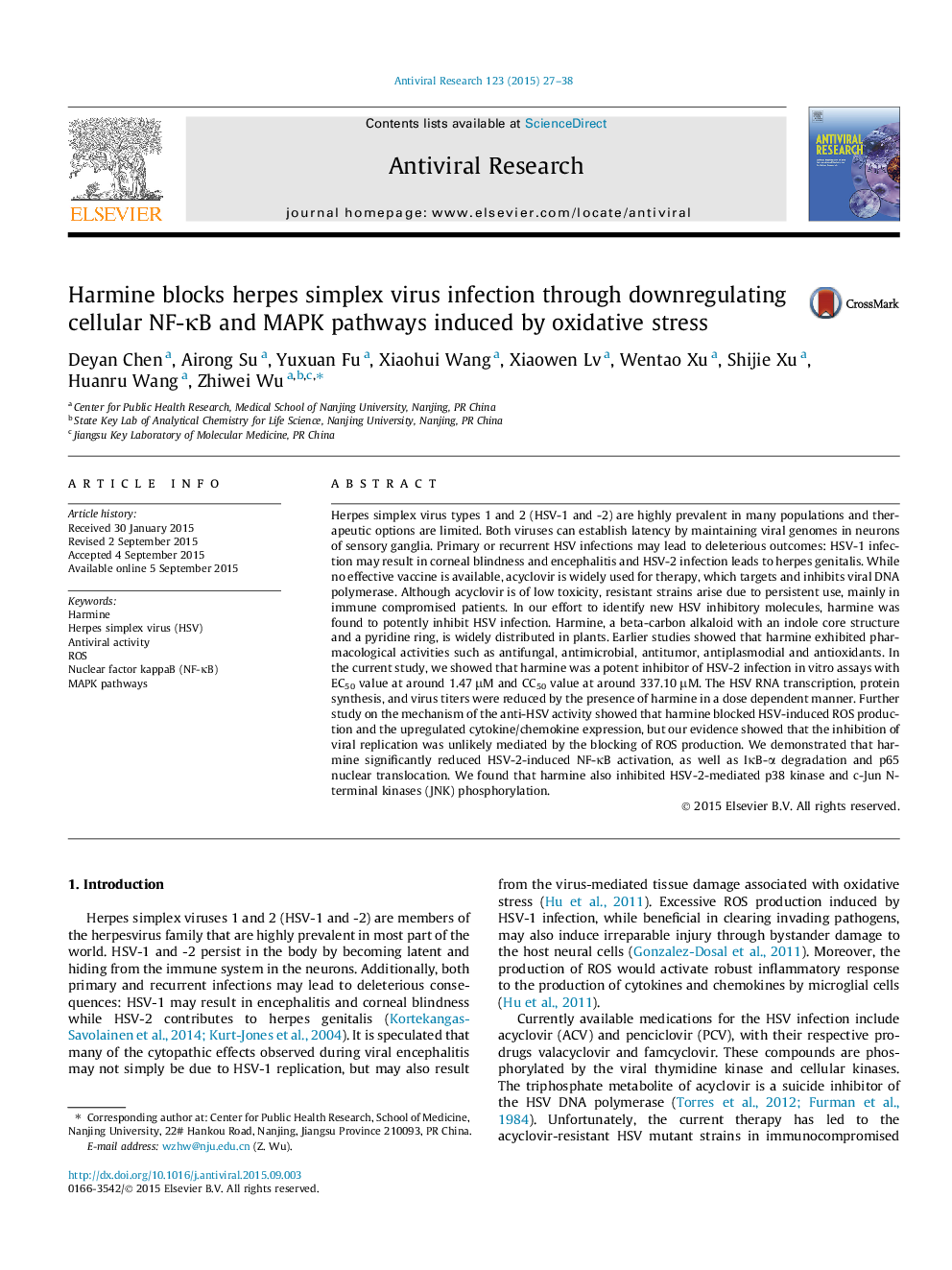| کد مقاله | کد نشریه | سال انتشار | مقاله انگلیسی | نسخه تمام متن |
|---|---|---|---|---|
| 2509762 | 1557820 | 2015 | 12 صفحه PDF | دانلود رایگان |

• Harmine inhibited HSV-1 and HSV-2 replication and viral gene expression.
• Harmine downregulated the ROS production induced by HSV infection.
• The anti-HSV activity of harmine was mediated through regulating NF-κB and MAPK pathway.
Herpes simplex virus types 1 and 2 (HSV-1 and -2) are highly prevalent in many populations and therapeutic options are limited. Both viruses can establish latency by maintaining viral genomes in neurons of sensory ganglia. Primary or recurrent HSV infections may lead to deleterious outcomes: HSV-1 infection may result in corneal blindness and encephalitis and HSV-2 infection leads to herpes genitalis. While no effective vaccine is available, acyclovir is widely used for therapy, which targets and inhibits viral DNA polymerase. Although acyclovir is of low toxicity, resistant strains arise due to persistent use, mainly in immune compromised patients. In our effort to identify new HSV inhibitory molecules, harmine was found to potently inhibit HSV infection. Harmine, a beta-carbon alkaloid with an indole core structure and a pyridine ring, is widely distributed in plants. Earlier studies showed that harmine exhibited pharmacological activities such as antifungal, antimicrobial, antitumor, antiplasmodial and antioxidants. In the current study, we showed that harmine was a potent inhibitor of HSV-2 infection in vitro assays with EC50 value at around 1.47 μM and CC50 value at around 337.10 μM. The HSV RNA transcription, protein synthesis, and virus titers were reduced by the presence of harmine in a dose dependent manner. Further study on the mechanism of the anti-HSV activity showed that harmine blocked HSV-induced ROS production and the upregulated cytokine/chemokine expression, but our evidence showed that the inhibition of viral replication was unlikely mediated by the blocking of ROS production. We demonstrated that harmine significantly reduced HSV-2-induced NF-κB activation, as well as IκB-α degradation and p65 nuclear translocation. We found that harmine also inhibited HSV-2-mediated p38 kinase and c-Jun N-terminal kinases (JNK) phosphorylation.
Journal: Antiviral Research - Volume 123, November 2015, Pages 27–38